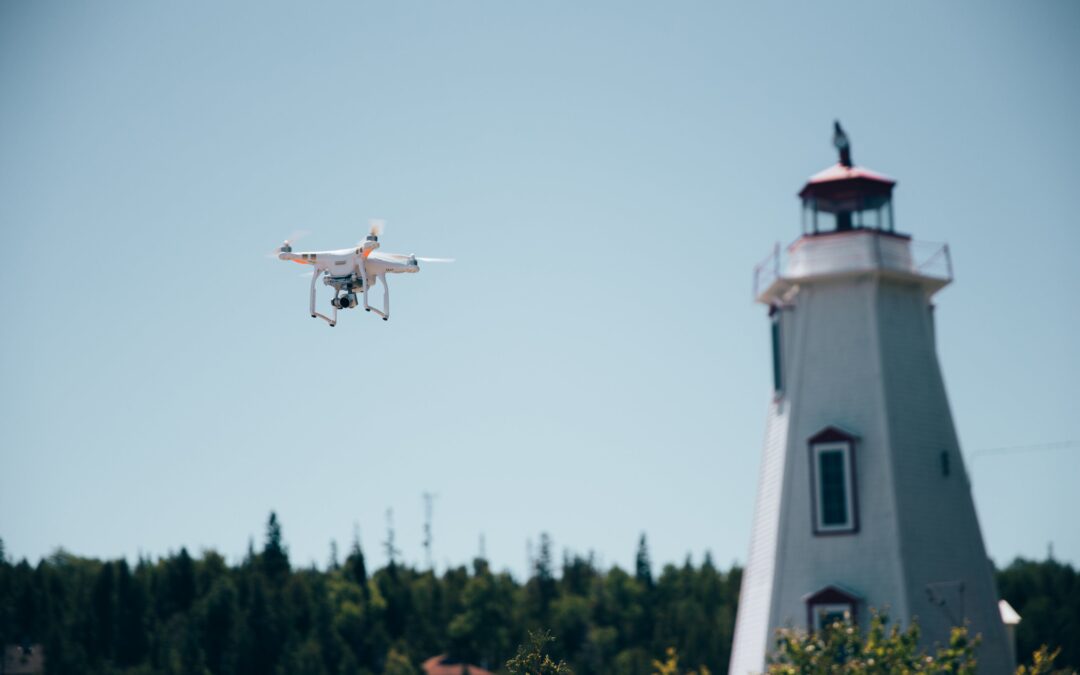The rapid advancement of drone technology has transformed various industries, from photography and cinematography to agriculture and infrastructure inspection. With India emerging as a key player in the global drone market, the evolution of drone pilot training in the country has been equally remarkable. In this blog, we’ll take a journey through the past, present, and future of drone pilot training in India, highlighting its significance and potential impact.
The Past: Navigating Uncharted Skies
In the early days of drones, training was often informal and self-taught. Enthusiasts would learn to fly through trial and error, with minimal understanding of aviation regulations and safety protocols. As drone usage expanded, it became evident that a more structured approach was necessary to ensure safe and responsible drone operation.
Recognizing this need, the Directorate General of Civil Aviation (DGCA) in India introduced “The Drone Rules 2021”to address concerns related to safety, security, and privacy. These regulations highlighted the importance of proper training for drone operators, laying the foundation for a more organized training ecosystem.
The Present: Structured Training and Licensing
Today, drone pilot training in India has evolved significantly. Training institutes, both private and government-affiliated, have emerged to offer comprehensive courses that cover not only the technical aspects of flying drones but also legal and ethical considerations. These courses are designed to equip aspiring drone pilots with the knowledge and skills required to operate drones safely and in compliance with regulations.
One notable development is the Remote Pilot Certificate (RPC) introduced by the DGCA. RPC is mandatory for individuals operating drones for commercial purposes. To obtain an RPC, candidates must undergo training from DGCA-approved remote pilot training organizations, pass written and practical examinations, and demonstrate their ability to fly drones responsibly.
The Future: Advancements and Specializations
Looking ahead, the evolution of drone pilot training in India is poised for further growth and specialization. As drone applications diversify, training programs are likely to adapt to cater to various industries. For instance, specialized training for drone applications in agriculture, disaster management, wildlife conservation, and infrastructure inspection could become more prominent.
Moreover, advancements in drone technology, such as the integration of artificial intelligence and automation, will require pilots to possess a higher level of technical expertise. Training programs might include modules on data analysis, AI-assisted flight planning, and troubleshooting advanced drone systems.
Challenges and Opportunities
While the evolution of drone pilot training in India is promising, challenges remain. Access to quality training, standardization of curriculum, and affordability are issues that need to be addressed to ensure that the benefits of drone technology are accessible to a wide range of individuals.
Opportunities, however, are abundant. The growing demand for skilled drone pilots can lead to job creation and entrepreneurship opportunities. Trained drone pilots can contribute to industries like aerial photography, cinematography, surveying, mapping, agriculture, and more.
Conclusion
The evolution of drone pilot training in India reflects the dynamic nature of the drone industry itself. From informal hobbyists to certified professionals, the journey has been transformative. As India continues to embrace drones for various applications, structured training and responsible piloting will be essential to ensure safety, compliance, and the realization of the full potential of this revolutionary technology. As we look to the future, the skies are not just filled with drones, but with the promise of skilled pilots navigating them adeptly.

